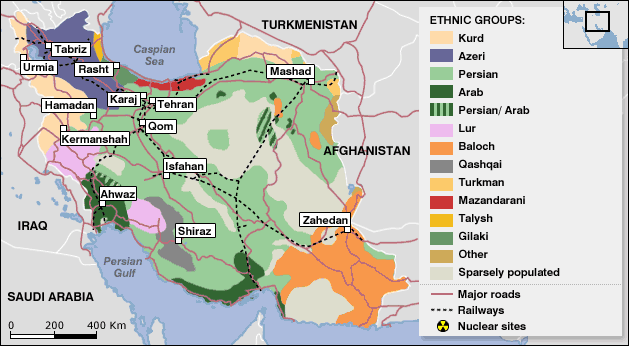
Brussels International Center
The United States and other foreign governments must strategize about the potentially potent role of Iran’s ethnic minorities, argues Brenda Shaffer, a visiting researcher and professor in Georgetown’s Center for Eurasian, Russian and East European Studies. Meaningful action by these countries could include giving the ethnic groups a platform in U.S. government-sponsored media outlets, such as Voice of America and Radio Farda, that reach into Iran. This might also encourage use of political means for change, and not violent tools, she writes for Reuters.
Those seeking regime change within Iran can’t expect a post-Islamic Republic liberal democracy to work if half the population is, for example, restricted in the use of their own language, adds Shaffer, previously the research director at Harvard University’s Caspian Studies Program:
While Persian could remain the state language, the ethnic minorities would feel more glued to the state and a civic identity could be formed if they could educate their children in their own languages, alongside Persian, and use their own languages in interaction with critical government institutions like courts and police. Those seeking democracy and change in the regime in Iran must reconsider their existing policies that dismiss ethnic minority demands – failure to do so risks alienating an enormous reservoir of support.







